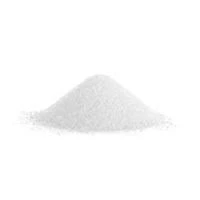
Understanding the Role and Applications of Emulsifier E476 in Food Industry
Understanding Emulsifier E476 Polyglycerol Esters of Fatty Acids
Emulsifiers play an integral role in the food industry, serving as agents that help to stabilize mixtures of oil and water, which would otherwise separate. Among the numerous emulsifiers available, E476, also known as polyglycerol esters of fatty acids, stands out due to its versatility and functionality in a variety of food products. In this article, we will explore what E476 is, its properties, applications, and some considerations regarding its use in our diets.
What is E476?
E476 is a food additive derived from the esterification of polyglycerols and fatty acids. It is categorized as a non-ionic emulsifier, meaning that it does not carry a charge and thus can function effectively in a wide range of pH levels and conditions. The structure of E476 allows it to interact with both hydrophilic (water-loving) and hydrophobic (water-repelling) components, enabling it to stabilize emulsions – mixtures in which fat droplets are dispersed in water or vice versa.
Properties of E476
E476 possesses several beneficial properties that contribute to its efficacy as an emulsifier. Firstly, it has excellent emulsifying capability, allowing for the creation of stable emulsions, which is especially important in products such as margarine, mayonnaise, and salad dressings. Additionally, E476 acts as a stabilizer, thickener, and anti-crystallization agent, which enhances texture and shelf-life in various food applications.
Another significant property of E476 is its ability to improve the overall mouthfeel of products. It can modify the viscosity of food items, helping to provide a creamy texture that consumers often prefer. Furthermore, this emulsifier is recognized for its compatibility with various ingredients, allowing it to be used alongside different oils and fat sources without degrading their quality.
Applications of E476
Due to its multifunctional nature, E476 is widely utilized across various sectors of the food industry. Common applications include
1. Bakery Products E476 helps in emulsifying fat in dough, enhancing the texture and volume of baked goods. It also aids in extending the shelf life of products by maintaining moisture.
emulsifier e476

2. Dairy Products In products such as ice cream, cream cheese, and yogurt, E476 ensures uniform distribution of fat and prevents the formation of ice crystals, thus improving creaminess.
3. Confectionery E476 is used in chocolates and candies to maintain a smooth texture, prevent fat bloom, and improve spreadability.
4. Sauces and Dressings Emulsifiers like E476 are critical for the stability of vinaigrettes, mayonnaise, and other sauces, preventing separation and ensuring a consistent, appealing finish.
5. Packaged Foods Many processed foods, such as ready-to-eat meals and snacks, utilize E476 to achieve the desired texture and stability.
Regulatory Status and Safety
E476 is approved for use in many regions worldwide, including the European Union, where it is assigned the E number 476. Regulatory agencies such as the U.S. Food and Drug Administration (FDA) classify it as Generally Recognized As Safe (GRAS), indicating that it is safe for consumption in amounts typically found in food products.
However, as with any food additive, it's essential to consider consumption levels. Although E476 is considered safe, excessive intake of processed foods containing high levels of emulsifiers can lead to health concerns. Research is ongoing regarding the implications of consuming large quantities of emulsifiers, suggesting that moderation is key in maintaining a balanced diet.
Conclusion
Emulsifier E476, or polyglycerol esters of fatty acids, is a vital component of the modern food industry, contributing to the texture, stability, and quality of a myriad of food products. Its unique properties make it indispensable in various applications, ensuring that products remain consistent and appealing to consumers. While it is recognized as safe by regulatory bodies, it is still important for individuals to be mindful of their overall diet and the consumption of processed foods. Understanding food additives like E476 can empower consumers to make informed choices about the products they consume, leading to healthier eating habits and lifestyle decisions.
-
Pure Sodium Dichloroisocyanurate Dihydrate | Powerful DisinfectantNewsAug.29,2025
-
Industrial Chemicals: Quality & Purity for Every IndustryNewsAug.28,2025
-
Nitrile Rubber Honoring Strict Production StandardsNewsAug.22,2025
-
Aspartame Ingredients Honoring Food Safety ValuesNewsAug.22,2025
-
Fertilizer for Balanced Plant NutritionNewsAug.22,2025
-
Cyanide Gold Processing with High Purity AdditivesNewsAug.22,2025
-
Formic Acid in Textile Dyeing ApplicationsNewsAug.22,2025
Hebei Tenger Chemical Technology Co., Ltd. focuses on the chemical industry and is committed to the export service of chemical raw materials.
-

view more DiethanolisopropanolamineIn the ever-growing field of chemical solutions, diethanolisopropanolamine (DEIPA) stands out as a versatile and important compound. Due to its unique chemical structure and properties, DEIPA is of interest to various industries including construction, personal care, and agriculture. -

view more TriisopropanolamineTriisopropanolamine (TIPA) alkanol amine substance, is a kind of alcohol amine compound with amino and alcohol hydroxyl, and because of its molecules contains both amino and hydroxyl. -

view more Tetramethyl Thiuram DisulfideTetramethyl thiuram disulfide, also known as TMTD, is a white to light-yellow powder with a distinct sulfur-like odor. It is soluble in organic solvents such as benzene, acetone, and ethyl acetate, making it highly versatile for use in different formulations. TMTD is known for its excellent vulcanization acceleration properties, which makes it a key ingredient in the production of rubber products. Additionally, it acts as an effective fungicide and bactericide, making it valuable in agricultural applications. Its high purity and stability ensure consistent performance, making it a preferred choice for manufacturers across various industries.





